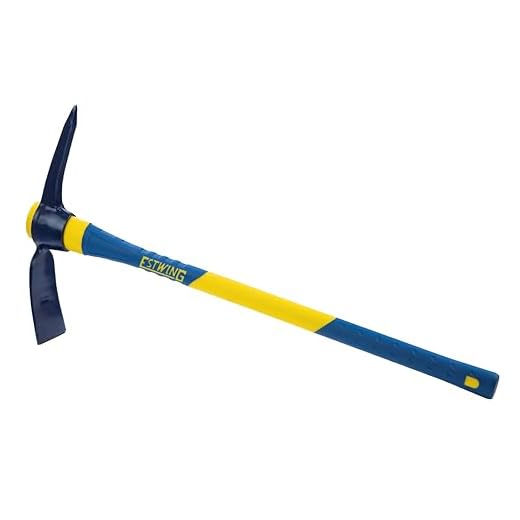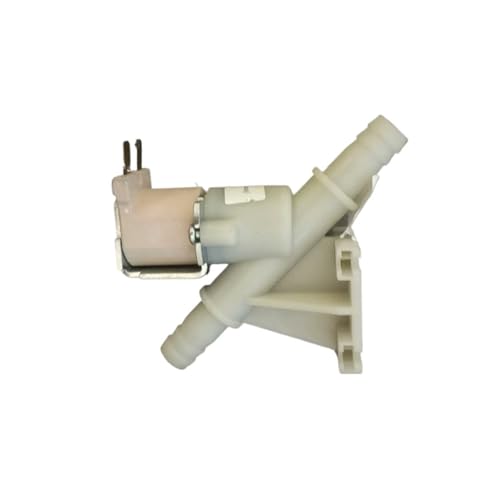




A pick axe is a versatile tool that has been used for centuries in various industries, such as construction, mining, and gardening. Its unique design and sturdy construction make it an essential tool for many tasks that require breaking, digging, or prying.
One of the main uses of a pick axe is in construction, where it is used to break through tough materials like concrete or asphalt. Its pointed end allows for precise and controlled strikes, making it an effective tool for breaking up and removing unwanted materials.
In the mining industry, pick axes are used for extracting minerals and ores from the earth. Miners rely on the strength and durability of a pick axe to break through rock and extract valuable resources. The pick axe’s ability to chip away at hard surfaces makes it an invaluable tool in this field.
Gardeners also find pick axes useful in their work. When digging in hard or compacted soil, a pick axe can help to loosen it up and make it easier to work with. The pointed end can also be used to remove rocks and roots, creating a more fertile and manageable garden bed.
Overall, the pick axe is a valuable tool in various industries and is cherished for its versatility and strength. Whether it is used in construction, mining, or gardening, the pick axe is a reliable companion that can assist in a wide range of tasks.
Definition and Purpose
A pickaxe is a handheld tool that consists of a long handle with a sharp, pointed end. It is commonly used in mining, construction, and landscaping. The pickaxe is designed to break up hard materials such as rocks, concrete, and soil.
Function
The main purpose of a pickaxe is to provide leverage and force to break or loosen hard surfaces. It is commonly used by miners and construction workers to break up rocks and other materials during excavation. The sharp end of the pickaxe allows it to penetrate the surface and create fractures, making it easier to remove or extract the material.
Versatility
Pickaxes are versatile tools that can be used for various tasks. They can be used to dig trenches, remove tree roots, break up concrete, and create holes for fence posts. In addition to their use in heavy-duty tasks, pickaxes can also be used for lighter tasks such as gardening and landscaping, such as breaking up compacted soil or removing weeds.
Main uses
A pickaxe is primarily used for the following tasks:
| Mining: | One of the main uses of a pickaxe is for mining. It is used to break through rock and hard surfaces, allowing miners to extract valuable minerals and ores. |
| Construction: | When it comes to construction, a pickaxe is used to break up concrete, asphalt, or other tough materials. It helps to clear the way for construction projects and allows for the removal of unwanted structures. |
| Gardening and landscaping: | In gardening and landscaping, a pickaxe is used for digging holes in the ground, removing roots, and breaking up hard soil. It is also helpful for creating borders and edging. |
| Demolition: | The sturdy and sharp end of a pickaxe is useful for demolishing structures, such as walls or old buildings. It provides a controlled and effective way to dismantle unwanted constructions. |
| Ice and snow removal: | In cold climates, a pickaxe can be used to break up ice and compacted snow. It comes in handy for clearing pathways and creating traction on slippery surfaces. |
Construction and Mining
A pickaxe is an essential tool in both the construction and mining industries. Its sturdy design and sharp pointed ends make it an ideal tool for breaking up hard materials such as rock, concrete, and asphalt.
In the construction industry, pickaxes are commonly used during the demolition phase to break down structures and remove debris. They can easily chip away at concrete walls, floors, and foundations, allowing for efficient removal or alteration of existing structures.
Similarly, in the mining industry, pickaxes are used to extract valuable minerals and ores from the earth. Miners use pickaxes to break through solid rock and create tunnels and shafts for mining operations. The pickaxe’s sharp ends allow miners to chip away at the rock face, gradually expanding the tunnel and creating space for extraction.
The versatile nature of the pickaxe also makes it useful in other construction and mining tasks. It can be used to dig trenches, loosen compacted soil, and remove roots and other obstacles. The pickaxe’s durability and strength make it a reliable tool for heavy-duty tasks in various industries.
Furthermore, pickaxes are often paired with other tools, such as shovels or hammers, to maximize efficiency and effectiveness. The combination of different tools allows workers to tackle different tasks with ease, whether it’s breaking up large rocks or digging trenches for pipelines.
In conclusion, pickaxes play an essential role in construction and mining. Their ability to break through hard materials makes them invaluable tools for various tasks, from demolition to mining operations. With their durability and versatility, pickaxes are a staple in the toolkit of construction workers and miners alike.
Types of pick axes
There are several types of pick axes that are designed for specific purposes. Each type has its own unique features and is used for different tasks.
1. Standard pick axe
The standard pick axe is the most common type and is often used in general construction and landscaping. It features a flat end for digging and a pointed end for breaking up rocks and hard soil.
2. Mattock pick axe
The mattock pick axe is a versatile tool that combines features of a pick axe and an adze. It has a wide, flat end for digging and a pointed end for breaking up compacted soil and chopping roots.
Note: The mattock pick axe is commonly used in gardening and farming.
3. Cutter mattock pick axe
The cutter mattock pick axe is similar to the mattock pick axe, but it also has a cutting blade on the side for slicing through tough vegetation, such as roots and thick brush.
4. Railroad pick axe
The railroad pick axe, also known as a miner’s pick, has a long handle and a narrow, pointed end. It is designed for cutting through hard materials, such as rock and concrete, and is commonly used in railroad construction and mining.
5. Ice axe
The ice axe is a specialized pick axe designed for climbing icy terrain. It has a sharp, pointed end for self-arresting during a fall and a flat end for cutting steps in the ice.
Note: The ice axe is commonly used in mountaineering and ice climbing.
Traditional pick axe
A traditional pick axe is a versatile tool that has been used for centuries in a variety of industries and tasks. It consists of a handle, usually made of wood or metal, attached to a pointed metal head with a flat chisel on one end and a pointed pick on the other.
The pick axe is commonly used in agriculture, construction, and mining. In agriculture, it is used for breaking up hard soil, removing rocks, and digging trenches. In construction, it is used for digging and breaking through hard materials such as concrete and asphalt.
One of the key features of the pick axe is its ability to break through tough surfaces with relative ease. The pointed pick can be used to chip away at hard materials, while the flat chisel can be used to pry and break apart rocks and other solid objects.
Due to its durability and versatility, the traditional pick axe remains a popular tool among professionals and hobbyists alike. However, it is important to use caution and proper technique when using the pick axe, as it can be dangerous if not handled correctly.
Overall, the traditional pick axe is a reliable and effective tool that has stood the test of time. Its strength, durability, and ability to handle a wide range of tasks make it an essential tool for many industries.
Proper use and technique
Using a pickaxe properly requires both skill and precision. Here are some guidelines to help you use a pickaxe effectively:
1. Grip the handle: Ensure that you have a firm and comfortable grip on the handle of the pickaxe. This will help you maintain control and prevent accidents.
2. Stance and posture: Stand with your feet shoulder-width apart and your knees slightly bent. This will provide you with stability and balance as you swing the pickaxe.
3. Target the right spot: Before swinging the pickaxe, identify the area you want to break up. Aim for the center of the spot to maximize your impact and minimize effort.
4. Swing with force: Hold the pickaxe with both hands and swing it over your shoulder. Use your shoulders, arms, and core muscles to generate momentum and power. Follow through with the swing to ensure maximum impact.
5. Pace yourself: Do not exhaust yourself by swinging the pickaxe too quickly and forcefully. Take breaks when needed and hydrate regularly to prevent fatigue.
6. Use proper protective gear: Always wear safety goggles, gloves, and sturdy footwear to protect yourself from flying debris and potential accidents.
7. Maintain your pickaxe: Regularly inspect and sharpen the blade of your pickaxe to ensure its effectiveness. Clean it after use and store it in a safe place to prevent rusting and damage.
Remember, using a pickaxe requires physical exertion, so always listen to your body and avoid overexertion. If you are new to using a pickaxe, consider seeking guidance from experienced individuals or professionals.
Safety Precautions
When using a pickaxe, it is important to take certain safety precautions to prevent accidents and injuries. Here are some guidelines to follow:
| 1. Wear Protective Gear | Always wear the appropriate personal protective equipment (PPE) when using a pickaxe. This includes safety goggles to protect your eyes from flying debris, gloves to protect your hands, and sturdy work boots to protect your feet. |
| 2. Check the Working Area | Before using a pickaxe, inspect the working area to ensure there are no potential hazards such as loose rocks, underground cables or pipes, or unstable ground. Clear any obstacles that may interfere with your work. |
| 3. Use Proper Technique | Use the pickaxe with the proper stance and technique. Maintain a firm grip on the handle and swing the tool smoothly and with control. Avoid overexerting yourself or swinging the pickaxe too forcefully, as this may lead to muscle strains or accidents. |
| 4. Avoid Overhead Hazards | Be aware of any overhead hazards such as low-hanging branches or electric power lines. Avoid working under these hazards to prevent injuries from falling objects or electrocution. |
| 5. Work with Others | If possible, avoid working alone when using a pickaxe. Having a second person nearby can provide assistance in case of an emergency or accident. Communicate with your co-workers about your actions and be aware of their presence to avoid accidental injuries. |
| 6. Secure the Pickaxe | When not in use, always secure the pickaxe properly. Store it in a safe place where it will not pose a tripping hazard, and make sure the sharp end is covered or protected to prevent injuries. |
By following these safety precautions, you can minimize the risks associated with using a pickaxe and ensure a safer working environment.








